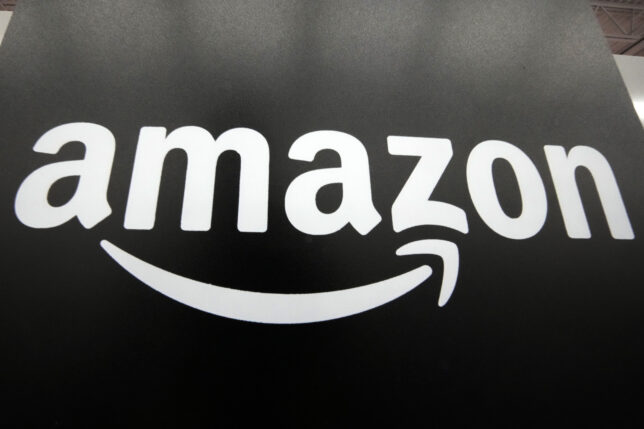Organization Trends
The Religiosity of ESG Activists Through the Prism of Amazon Shareholder Meetings
 File - The Amazon logo is displayed at a Best Buy store in Pittsburgh on Jan. 23, 2023. The Federal Trade Commission's long-awaited antitrust case is the agency's most aggressive move yet to tame the market power of Amazon, a company that's become synonymous with online shopping and fast deliveries.(AP Photo/Gene J. Puskar, File)
File - The Amazon logo is displayed at a Best Buy store in Pittsburgh on Jan. 23, 2023. The Federal Trade Commission's long-awaited antitrust case is the agency's most aggressive move yet to tame the market power of Amazon, a company that's become synonymous with online shopping and fast deliveries.(AP Photo/Gene J. Puskar, File)

To understand how environmental, social, and governance (ESG) activists are trying to shoehorn substantive public policy debates into American businesses, look no further than the shareholder resolutions they file at some of the country’s largest companies.
Amazon’s annual meeting is May 22, and the company’s proxy materials reveal it will be facing fourteen shareholder resolutions. These generally serve as a good barometer for understanding current trends and priorities of ESG activists. The resolutions filed at Amazon, and the company’s response to them, help illustrate the nature of ESG activism at American public companies in 2024.
The “E” prong of ESG—specifically climate change—has long been a focus of shareholder activism, and Amazon is no exception. Notable resolutions in this category include:
- A proposal from Green Century Capital Management that takes issue with Amazon’s methodology for disclosing its Scope 3 emissions, or those which are beyond the company’s direct control.
- A proposal from the nonprofit activist group As You Sow that asks Amazon to report on how it could make “all packaging curbside recyclable, reusable, or compostable.”
It should be noted that As You Sow, which has received substantial support from the foundations of political megadonor George Soros, is probably the most important left-of-center ESG shareholder activist group in the country. It has been involved in no fewer than twelve separate resolutions filed at Amazon alone since 2013.
Organized labor also joined in, with two resolutions filed by labor union pension funds:
- The AFL-CIO is asking Amazon to establish a new director committee to oversee alleged human rights risks from artificial intelligence (to include “underming[ing] democracy”).
- The International Brotherhood of Teamsters is requesting a so-called “just transition” report, claiming that investors are keenly interested in Amazon’s “role in supporting social fairness as the world attempts to decarbonize.”
One of the more controversial resolutions was filed by the American Baptist Home Mission Society. It claims Amazon’s customers include governments “with a history of rights-violating behavior”—referring not to authoritarian Russia or China, but to democratic Israel and the United States. The resolution alleges that the U.S. Department of Homeland Security uses Amazon Web Services to “facilitate surveillance, arrests…detention and deportation” of illegal immigrants, and that Israel uses it to maintain what the resolution calls “the apartheid system under which Palestinians are surveilled, unlawfully detained, and tortured.” It also references war crimes accusations against the Israel Defense Forces “since October 7, 2023,” but is notably silent as to the significance of that date.
There are further proposals concerning collective bargaining, race and gender issues, working conditions, and more.
Not appearing in Amazon’s proxy materials was a proposal that had been submitted by People for the Ethical Treatment of Animals (PETA), asking Whole Foods (an Amazon subsidiary) to consider ending all coconut milk imports from Thailand. PETA claimed that Thai workers rely on “forced monkey labor” to harvest coconuts from tall trees. Amazon challenged that resolution as procedurally deficient.
It’s natural to wonder: what does any of this have to do with the legitimate interests of investors, or with creating shareholder value?
This is a good question, and an important one. Amazon itself raised it this year.
In a statement preceding the resolutions listed in its proxy materials, Amazon essentially accused certain filers of exploiting the shareholder resolution process for their own activist purposes, regarding societal issue that “may have little or nothing to do with our business or operations.” The company stated that “in the vast majority of cases, we believe the costs of implementing the proposals significantly outweigh the benefits or the potential impact of speculative risks or concerns posited in the proposals, and that the proposals do not enhance or create shareholder value” (emphasis in original). It also took a swipe at proxy advisory firms for facilitating “inaccurate or biased assertions regarding our operations.”
The reality is that ESG shareholder activism has never been about actually improving corporate performance or increasing returns for shareholders. Instead, the objective is to use American public companies to push overwhelmingly left-leaning sociopolitical priorities—pressure to which those companies all-too-often acquiesce. This is problematic on multiple levels. A resolution submitted by the conservative National Center for Public Policy Research rightly observed that in recent years Amazon has taken controversial positions on divisive societal and political issues, and that this exposes the company to an unnecessary risk of alienating its customers. One need only recall Anheuser-Busch’s Bud Light fiasco for a real-world example of these risks.
Investor support for ESG resolutions has dropped off notably over the last couple of years, a likely consequence of both the ever-increasing demands being made by activists and pushback from those who prefer to resolve political issues through the democratic political process. This is a welcome development. It will be interesting to see whether this trend continues in 2024, and how Amazon’s shareholders respond to this year’s crop of proposals.
This article first appeared in RealClearMarkets on May 3, 2024.



